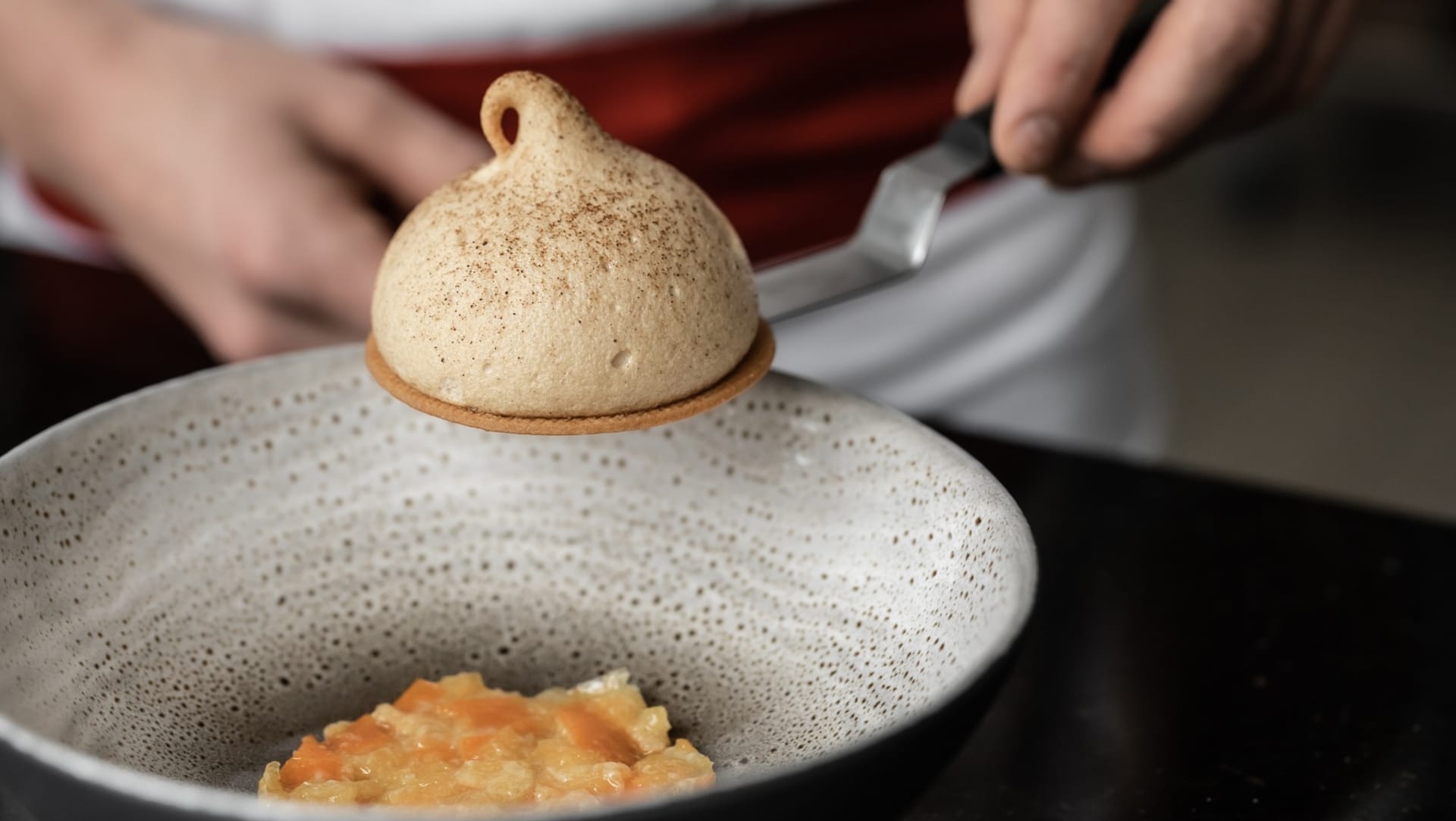You are using an outdated browser. Please upgrade your browser to improve your experience and security.

Making tomorrow sweeter
We believe that you, chefs, have the power to create a delicious and sustainable future. We want to help you do so.
Food is one of life’s great pleasures – sustaining us, transporting us and bringing us together for shared experiences. But today we’re in the midst of a climate, biodiversity and public health crisis, crises for which the food system must shoulder significant responsibility. At Valrhona, we believe that the world of gastronomy can be the source of the solution. Chefs like you have the ability to create food culture - influencing how, what and when people eat. It is this power that can be used to positively impact the planet, our diets and our future.
The world of sweet gastronomy faces specific sustainability challenges. Until now, however, there has not been a coherent framework for what ‘good’ looks like in the sector, nor tailored advice to help pastry chefs and artisans improve their impact. In partnership with Food Made Good - Valrhona’s official sustainability partner - and chefs across the world, we aim to change this.
Through our framework and guide, understand the key issues the sector faces and find practical advice on how to address them.
Together, let’s ensure the desserts, pastries, chocolates and ice creams that we treasure not only taste good but do good too.

Celebrate local & seasonal
Buying local produce in season is a shortcut to fresher, tastier, healthier ingredients. Seasonal fresh food, with shorter food miles, often has a smaller environmental footprint.

Support Global Farmers
A responsible business needs to understand where its ingredients come from and how they have been produced and use its purchasing to support economic development of farmers around the world.

Support Biodiversity & animal welfare
Ethical farming practices can mean animals have more space and varied natural environments to live in, as well as supporting biodiversity by preserving habitats for plants and insects.

Feed people well
Health concerns play an increasingly central role in customer choice. Keeping up with demand and offering dishes that are not excessively ‘unhealthy’ is as such likely to appeal to customers.

Support the community
Connecting kitchens to the community can increase customer loyalty, staff loyalty and make the food taste even sweeter. Being a positive influence on your local community often leads to social, economic and environmental benefits.

Treat all staff fairly
Supporting a positive staff culture helps foster a fulfilling place of work for all and makes hospitality a more attractive career prospect. The most successful businesses have found that a progressive approach helps improve recruitment and retention.

Value natural resources
Unnecessary use of energy and water is not only bad for the environment but costs your business money. The good news is that this is an area of sustainability where the interests of profit and planet directly align.

Waste no food
Between 8-10% of global greenhouse gas emissions are associated with food that is not consumed. This wasted food also represents a financial cost to businesses. Given there are food shortages in parts of the world, a responsible business has a duty to try and limit food waste.

Reduce, reuse, recycle
We need to move away from a make, take, dispose linear economy towards a circular economy model, where reducing, reusing and recycling are the aims, and in that order. Not only will this reduce waste that is sent to landfill but it can also save you money.
Our Contributors
In developing this guide and the sustainable sweet gastronomy framework, Food Made Good and Valrhona have spoken to 30 chefs across 12 countries. Expertise ranged from pastry chefs, chocolatiers, bakers and ice cream specialists to those working in hotels, restaurants and events. Getting a global perspective on the sustainability challenges and successes faced by chefs the world over was essential to the production of this guide.
Our thanks go to all those who were involved in this project:
